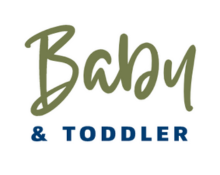
Feeding on demand, also known as responsive or baby-led feeding, is a feeding approach that involves feeding your baby whenever they show signs of hunger rather than following a strict schedule. It allows your baby to dictate their own feeding patterns based on their individual needs and cues. Here are some key points about feeding on demand:
Hunger cues: By observing your baby’s hunger cues, you can respond promptly to their needs. Hunger cues can include rooting, sucking on fists or fingers, increased alertness, stirring, or making sucking sounds. Crying is a late hunger cue, so it’s helpful to feed your baby before they become too hungry and upset.
Frequency of feeding: Babies have varying appetites, and their feeding needs can change from day to day or even during different stages of growth. Newborns often feed frequently, typically every 2 to 3 hours, including nighttime feedings. As they grow, the frequency of feedings may become more spaced out.
Duration of feedings: The duration of each feeding can vary. Some feedings may be quick and efficient, while others may take longer. It’s important to allow your baby to feed for as long as they need on each breast, ensuring they have an opportunity to access both the foremilk (thirst-quenching) and hindmilk (nutrient-rich).
Satiety cues: Watch for signs that your baby is full and satisfied, such as releasing the breast spontaneously, becoming relaxed, or falling asleep. Pay attention to your baby’s cues and allow them to guide when they are finished feeding.
Comfort feeding: Babies may also seek comfort at the breast even if they are not necessarily hungry. Comfort feeding can provide soothing and reassurance to your baby, promoting bonding and emotional connection.
Trusting your instincts: Feeding on demand requires trust in your baby’s ability to regulate their own intake and trust in your ability to respond to their needs. It can help establish a healthy breastfeeding relationship and support milk production by ensuring a good milk supply.
Remember that every baby is unique, and their feeding patterns and needs can vary. Trusting your baby and following their cues can help promote a healthy breastfeeding experience. If you have concerns about your baby’s feeding or need additional support, consult with a healthcare provider or a lactation consultant who can provide personalized guidance and assistance.
